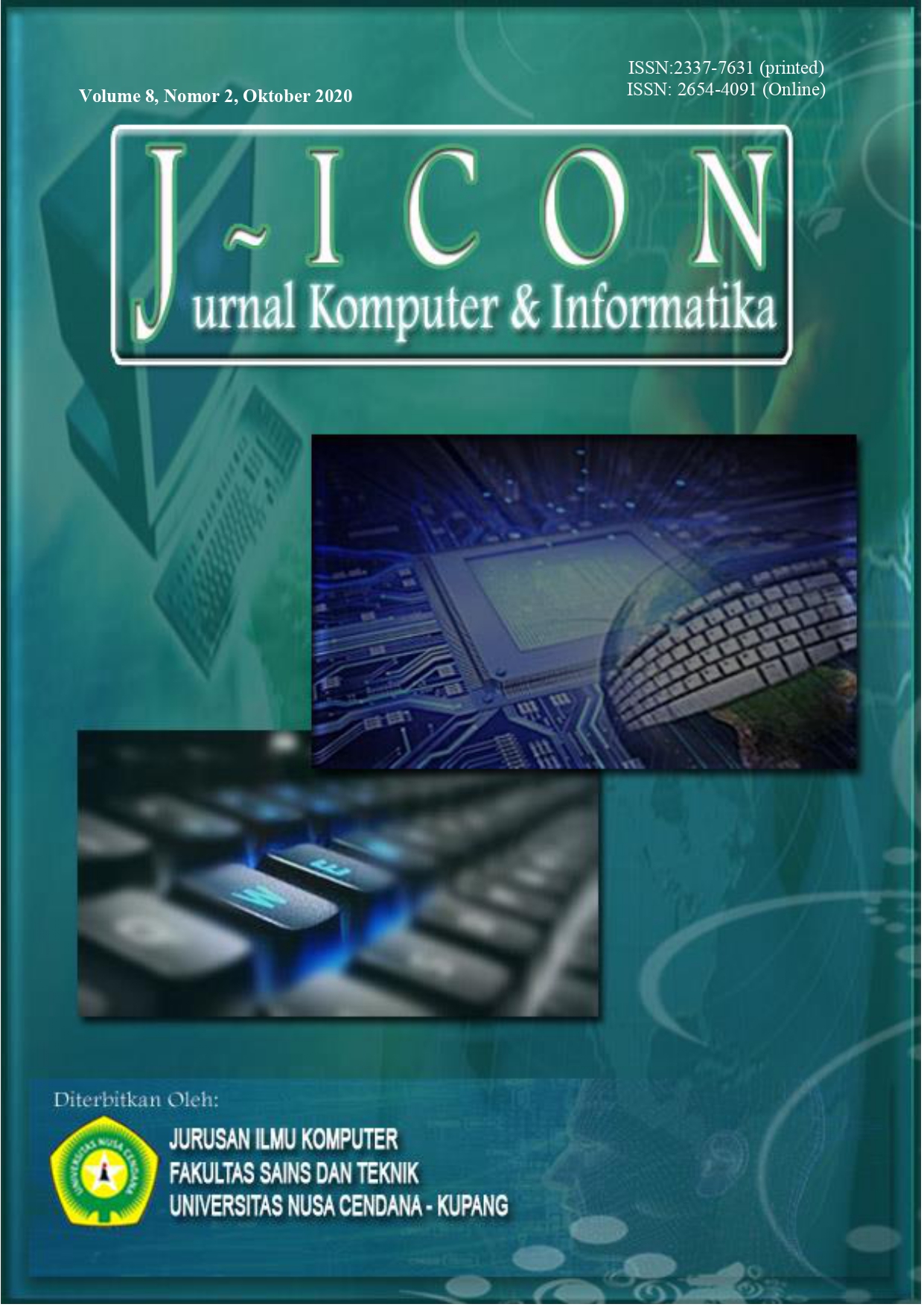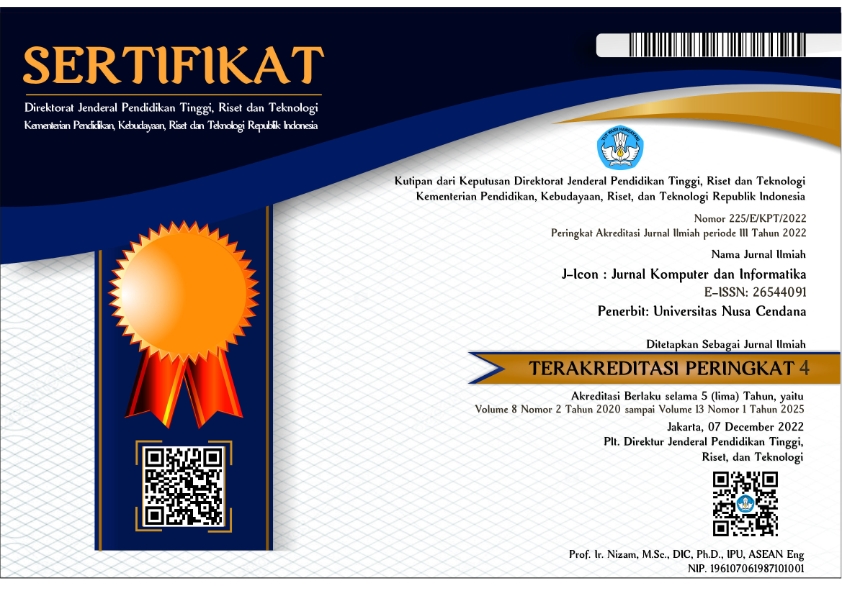ELITISM OF GENETIC ALGORITHM IN THE NONLINEAR FUNCTION OF TWO VARIABLES
Abstract
The evolutionary operator in the genetic algorithm (GA) does not guarantee that the quality of individuals from generation to generation is always good. Elitism maintains the preservation of the best individual traits from generation to generation by multiplying the best set of individuals. In this paper, it is determined the number of copies that need to be done on the best individual. Tests were carried out on five nonlinear functions with two variables and the result was that the best individual multiplication was able to provide the best solution.
Downloads
References
J. H. Holland, Adaptation in natural and artificial systems: an introductory analysis with applications to biology, control, and artificial intelligence, 1st MIT Press ed. Cambridge, Mass: MIT Press, 1992.
G. Roth and W. Crossley, “Investigation of number of children, number of parents, tournament size, and elitism in genetic algorithms,” presented at the 8th Symposium on Multidisciplinary Analysis and Optimization, Long Beach,CA,U.S.A., Sep. 2000, doi: 10.2514/6.2000-4846.
X.-S. Yang, Nature-inspired optimization algorithms, First edition. Amsterdam ; Boston: Elsevier, 2014.
F. Yu, X. Fu, H. Li, and G. Dong, “Improved Roulette Wheel Selection-Based Genetic Algorithm for TSP,” p. 4.
S. L. Yadav and A. Sohal, “Comparative Study of Different Selection Techniques in Genetic Algorithm,” Int. J. Eng., vol. 6, no. 3, p. 7, 2017.
Copyright (c) 2020 Jurnal Komputer dan Informatika

This work is licensed under a Creative Commons Attribution 4.0 International License.
The author submitting the manuscript must understand and agree that if accepted for publication, authors retain copyright and grant the journal right of first publication with the work simultaneously licensed under a Creative Commons Attribution (CC-BY) 4.0 License that allows others to share the work with an acknowledgment of the work’s authorship and initial publication in this journal.
 Adriana Fanggidae(1*)
Adriana Fanggidae(1*)




